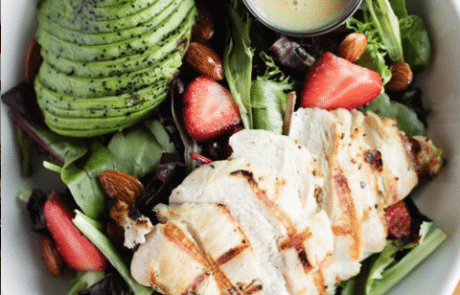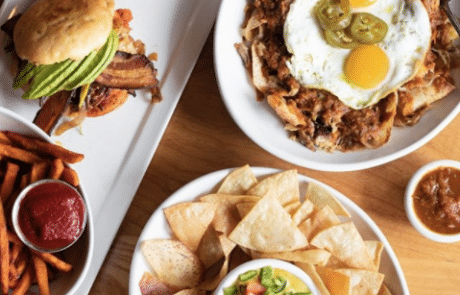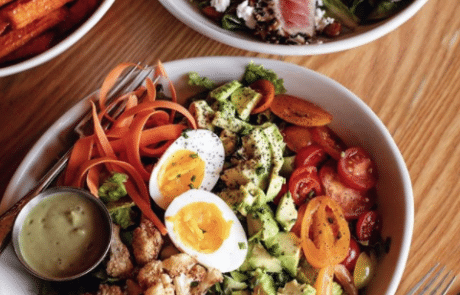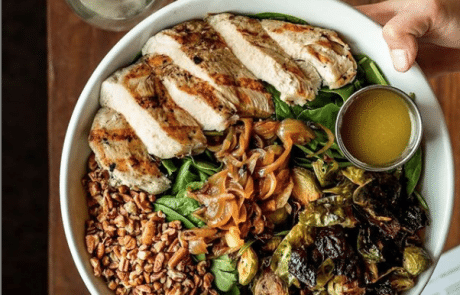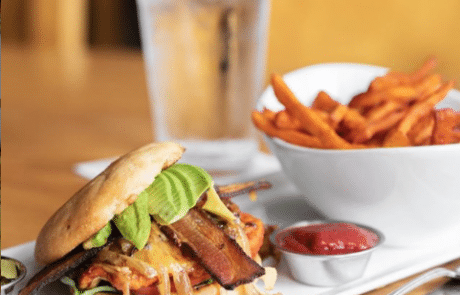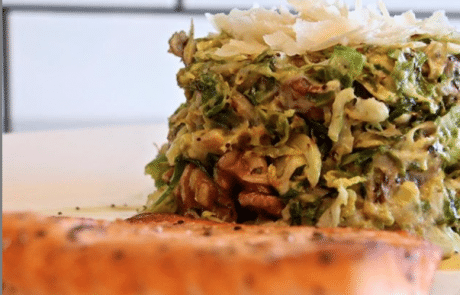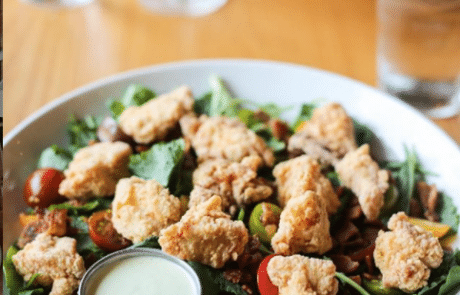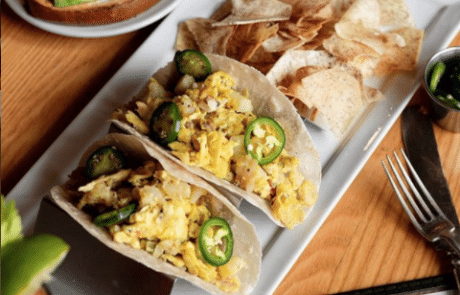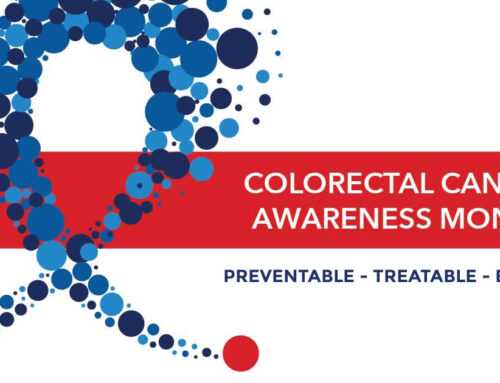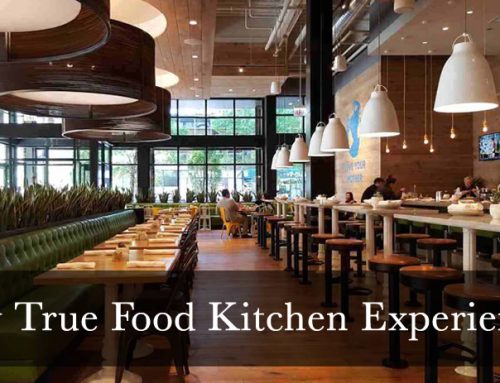Restaurant: Origin Kitchen + Bar
Cuisines: American, Healthy
Meals: Lunch/Brunch, Dinner
Location: Dallas (Knox/Henderson)
Hours: 9am-2pm (Mon&Sun), 9am-2pm & 5pm-10pm (Tue-Sat)
Price: Entrees $13-$25
Order Online: Curbside pickup available
Dietary Preferences

As we continue to move through the pandemic and restaurant occupancy for indoor dining now increased to 75% in DFW, I wanted to continue my restaurant review series. This review covers one more restaurant visit in Dallas before heading west to explore the healthy culinary offerings in the Fort Worth area. This time I am dining at the Origin Kitchen + Bar, which is located in the Knox-Henderson area on McKinney Avenue in Dallas. While this is a casual dining restaurant, during lunch you’ll see a mix of business & casual attire. This is a popular destination for weekend brunch and you’ll find a mixed crowd including families, diners in athletic attire post-workout, and those recovering from too much fun the night before.
The layout and décor of the restaurant are modern with industrial lighting and an open kitchen concept. This is a smaller space with 8 tables, 6 booths, and 2 large bar counters used for dining. After dining here several times, my experience has been to usually get a table right away. Although when it’s busy, we have had to wait up to 20 minutes for a table. Reservations can be made via their website as an option for those that think ahead (not me).
Origin Kitchen + Bar co-owner Jessica Myers describes the restaurant menu as offering healthy craft seasonal cuisine, which means that they make everything in-house and allow what is in season to drive the menu. “We have opened the menu beyond just Paleo to offer a wider variety to the marketplace. Someone who is strictly Paleo can still come in and enjoy that, but now we can offer something for everyone. Even the occasional cheat meal,” said Myers.
I’ll go into more detail on the Paleo diet in the next section as one of my reasons to eat here.
Why GI Doctors Eat Here
There is no substantial research regarding the effects of a Paleo diet on the digestive conditions IBS or IBD. One key component of a Paleo diet is the fact it is grain-free. Some theories suggest that a Paleo diet might promote a healthy gut microbiome that resembles the gut microbiome of our ancestors. Conversely, a typical high-carbohydrate diet can have an adverse effect on the gut microbiome.
Before going Paleo, you should discuss this option with your physician. It might be wise to start by choosing low-FODMAP fruits and vegetables to avoid worsening IBS symptoms as your body adapts to this new diet. Another diet management option is the “Whole30” method. In my opinion, this is a fad diet that emphasizes whole foods and the elimination of sugar, alcohol, grains, legumes, soy, and dairy. The Whole30 is similar to but more restrictive than the Paleo diet, as adherents may not eat natural sweeteners like honey or maple syrup.
That being said, I’m not advocating for a specific diet “name”. Choosing to eat more vegetables, fruit, and lean protein and cutting out processed foods filled with excessive sugar, refined grains, and unhealthy fats is certainly a way toward improved overall and digestive health. I think that Origin Kitchen does a good job of presenting a menu with these types of options, which is in line with the Paleo diet.
To learn more about nutrition and gut health, I encourage you to read my article on how to nourish your gut microbiome. This is an in-depth analysis of how to eat a healthy gut diet and will provide you with a good nutritional foundation as you make choices that are best for you.
– Jay Yepuri, MD
Food Rundown
The menu reflects a rustic California-inspired cuisine that focuses on clean proteins, healthy fats, and plenty of green options. That said, if you’re craving something a little less healthy, there are a few comfort food options as well like chilaquiles served with house-made malanga chips and grass-fed brisket or sautéed veggies.
This is a Paleo & Whole 30 friendly restaurant (minus the bar) and they can make modifications to almost every dish to accommodate any special dietary requests. All of their dressings are gluten and dairy-free. For cooking, they use all olive oil (except in their fryer, where non-GMO canola is used). Substituting gluten-free toast or buns is an option for an extra charge.
Coffee
Not your average cup of coffee, Dallas based micro-roaster Cultivar provides a responsibly sourced slow-roasted cup of joe. A few of the caffeinated offerings include espresso, cappuccino, latte, cold brew, and bullet coffee.
Bullet Coffee – this hot jolt of energy is composed of brewed coffee, grass-fed unsalted butter, and medium-chain triglyceride (MCT) oil. For those unfamiliar with bullet coffee, it is mostly popular with those following a high-fat, low-carb diet. The proposed benefits are increased energy, improved cognitive function, suppressed appetite, increased metabolism, and anti-inflammatory effects.
With this vast list of health benefits, I thought it would be helpful to have a local nutritional expert, Amy Gonzalez, weigh in with her thoughts on bullet coffee.
Nutritional Knowledge
Bullet Coffee
What makes Bullet coffee special is the addition of healthy fats that fuel you with energy. The grass-fed butter is a great source of conjugated linoleic acid (CLA), butyrate, vitamin A and K2. MCT oil is most commonly extracted from coconuts and is known for digestibility. The combination of these two is what gives Bullet coffee its benefits of boosting energy, reducing appetite, and supporting cognitive function.

Something to remember when drinking Bullet coffee is that it is a rich source of fat and calories. Since it’s so satiating, it may act as a “filler” in the diet, essentially displacing other nutrient-dense foods. While saturated fat can be a part of a healthy diet in reasonable amounts, it may be detrimental in large quantities. If you are watching your saturated fat or calories, it may be best to opt for Origin’s chai tea latte instead.
When it comes to coffee in general, there is a lot of mixed research on whether it can be a healthy addition to the diet. Daily intake of caffeine had been shown to reduce sleep quality and increase daytime sleepiness. So while caffeine may have immediate benefits to help keep you awake, the pay-off may not be so great. Coffee can also be stimulating to the adrenals and negatively impact digestion and may not be appropriate for someone who has digestive concerns, elevated cortisol, or struggles with anxiety.
– Amy Gonzalez, RD, LD, NTP, CLT
The Bar
Since they’ve included “bar” in the restaurant name it seems only fair to cover the bar menu. This is an extensive offering with wine, local beers, craft cocktails, and house-infused spirits. The menu indicates which drinks are gluten or grain-free.
BEVERAGE TIP
The menu notes that you can request a “skinny” option for a cocktail. They will replace sugar with Stevia…just ask.
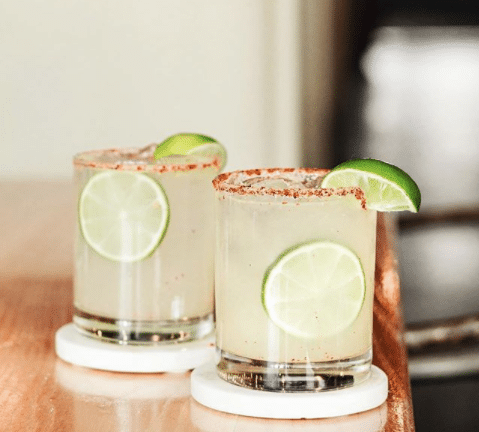
There’s nothing wrong with enjoying a cocktail with a meal. However, remember moderation is the key as alcohol can wreak havoc on your gut. The cocktails are served as doubles by default, so please take that into account and drink responsibly.
Popular Menu Items
According to our server, Jess, menu favorites are…
Starters: Paleo Hummus & Chicken Nachos
Salads: Warm Brussel Salad and The Regular
Bowls: Seasonal Hash Bowl
Sandwiches: Grass-Fed Beef Burger
Brunch: Veggie Omelet
Entrees: Grass-Fed Hanger Steak
We started the meal with the paleo hummus ($11) and opted for veggies instead of the malanga chips. This hummus had a different taste and texture than traditional hummus. It contains squash, macadamia nuts, tahini, roasted garlic, and lemon juice. The nuts added a unique texture and I thought it was very good.
For entrees, we had the regular salad ($15) and the bison burger ($19). The regular salad was a large entrée type salad composed of spinach, pasture-raised chicken, brussel sprouts, caramelized onions, pecans, and honey vinaigrette. To make it a little healthier, ask for raw nuts, as the others are roasted in honey, and ask for a balsamic vinaigrette or oil & vinegar dressing. The Origin Kitchen has no issues with making substitutions, so you won’t have to worry about getting an eye roll from your server when making these types of requests.
The bison burger is composed of 90/10 lean buffalo, caramelized onion, cheddar, greens, tomato, aioli, brioche, and choice of side. I opted for the sweet potato fries, but a healthier choice would have been a vegetable side. Other healthier changes to consider with this menu item would be to order it without a bun, mustard instead of aioli, and to sub avocado for cheese. I don’t eat burgers and fries often, so I decided to indulge and stay a little more traditional instead of making the aforementioned changes.
While we skipped dessert, they do offer 2 gluten-free items from local Dallas bakery Liteful Foods. Desert options are a cookie trifecta a la mode ($9) & a paleo chocolate mousse ($11)
TIP
Most adults don’t get enough daily fiber. It’s recommended to have 25 grams daily based on a 2,000 calorie diet. The dietary fiber found in fruits, veggies and whole grains all help with improving your digestive health. Eat your veggies!

The Defined Dish / Origin Kitchen
Dallas based food & lifestyle blog The Defined Dish has collaborated with Origin Kitchen to feature two of her own creations on their menu – green goddess salad & paleo green chili tacos. I think it’s great to see local sourcing & collaboration amongst businesses, so I wanted to mention this distinction in the Origin menu.
The Paleo Green Chili Tacos: grass-fed ground beef, pasture-raised eggs, hatch chilis, cilantro, lime, Siete paleo tortillas, malanga chips, and salsa. These breakfast tacos are delicious and I highly recommend them for a weekend brunch with a coffee or Bloody Mary.
The Green Goddess salad: arugula, kale, cherry tomatoes, uncured bacon, paleo popcorn pasture-raised chicken, and green goddess dressing. The popcorn chicken is fried in avocado oil as a healthier frying option that we’ll have Amy Gonzalez, RD breakdown for us.
Nutritional Knowledge
Frying foods with Avocado Oil vs Canola Oil
Canola oil is often used in restaurants for frying due to its neutral taste and high smoke point. However, this oil is widely misunderstood and was once considered a healthy cooking oil. Canola oil is derived from rapeseed plants, is highly processed with industrial solvents, and is high in omega-6 fatty acids. The concern is that a diet high in omega-6 polyunsaturated fats is that it can cause systemic inflammation in the body, which is an underlying factor in most chronic diseases. Additionally, about 90% of canola oil in the U.S. is genetically modified (GMO).
Avocado oil, on the other hand, is high in monounsaturated fatty acids and antioxidants. Since it also has a higher smoke point, it is a better option for high heat cooking and will help you avoid the free radicals that come with canola oil.
Something to consider when eating fried foods at restaurants is that the cooking oil may be re-used repeatedly. This will increase the free radicals, the molecules that cause cell damage, and lead to increased cancer risk. While avocado oil is a much better alternative to canola, it’s still best to limit your consumption of fried foods.
– Amy Gonzalez, RD, LD, NTP, CLT
Overall
We had a great experience at Origin Kitchen + Bar. While the menu is based on healthy items, they clearly have options for everyone. If you’re looking for a casual healthy meal in Dallas, I would strongly recommend giving this restaurant a try.
Other GI Doctor Restaurant Reviews
Dallas: Flower Child, True Food Kitchen
Fort Worth: check back for these reviews by winter 2021
Contributor
Amy Gonzalez, RD, LD, NPT, CLT is a Registered Dietitian and Nutritional Therapy Practitioner based in the Fort Worth, TX area. She practices Functional Nutrition, which helps to equip the body with the raw materials necessary to thrive in a healthful mind and body. Use these links to learn more & connect with Amy:

